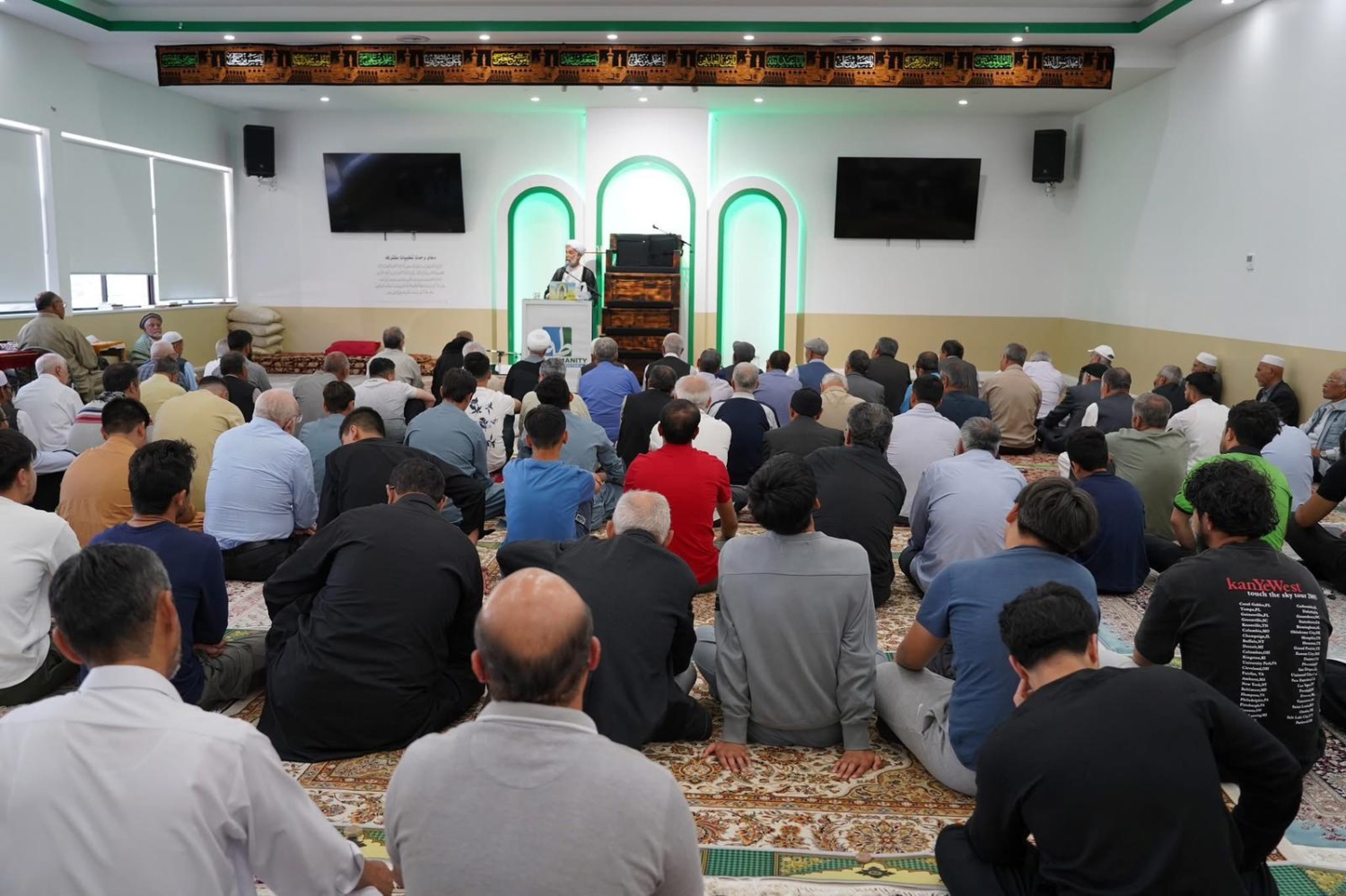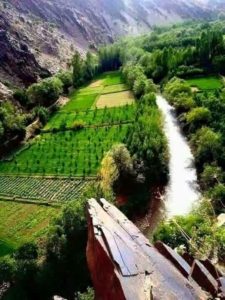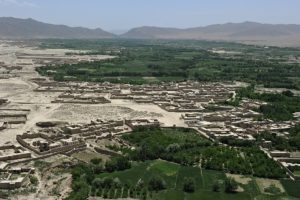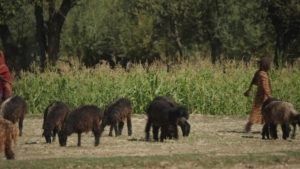Establish and fulfill the changing needs of Taha Humanity Association of Victoria members.
About Community
Taha Humanity Association of Victoria is registered not-for a profit organization in the State of Victoria, Australia and as a religious and cultural society to serve the need of the Muslims in the area. The organisation’s staff is volunteering to help vulnerable people such as students, new refugees, and many more.

Background and History:
TAHA was established in 2011 and Taha Humanity Association of Victoria is a non-profit registered organization of the Shia Ithna Asheri Muslim community of Melbourne, Australia. Over the continuous year of hardworking, Taha accomplished the utmost important project of buying a place to worship, educate, celebrate culture and wash our dear ones with love (mortuary). It is serving the religious and educational needs of over 700-800 members from Afghanistan, Iran, Iraq, India, Pakistan, Saudi Arabia, and others. With the combined efforts of the community, the TAHA Humanity Association of Victoria aims to serve its members and promote and assist humanitarian causes. The community focus on providing help to vulnerable people such as newly arrived Afghan refugees and many other vulnerable groups. We devote our time to organising events to bring the community together and connect people with each other. Provide meals to vulnerable families and individuals- most of our events provided food. We are a community that understands the struggle, and we have experienced we want to help others.
Taha Association Centre is formed for the purpose of serving the needs of the Shia from all around South East of Victoria and is aiming to serve in more geographic areas, Momeenin and Momeenat (Men’s & Women) both in Victoria and the other States of Australia. Over the year Taha Association have diverse identities such as the proportion of members from Afghanistan, Pakistan, Iraq, Iran, India, and other nationalities, and we are proud of mixed nationality working together for helping each other.
2011:
The organisation was created by a small committed group, and the overall vision and mission of the team were to help the people. In the first year, Taha Association faced numerous challenges both internal and external.
The internal challenges that we faced in collection donation to run and maintain Taha Association. However, the external challenges were we were unable to get funds from government associations, and the difficulty was finding a place permanently for the community.
2012-2015:
These years, the organisation was growing, and Taha Association manage to start the organisation with 100 people from all different backgrounds. End of 2015 Taha Association membership grew to almost 300 people and the new committee made a plan for the future. The committee was putting extensive hard work to bring people and help as many as they could with a very high budget, and organise as many events as possible.
2016:
The future plan homework began, and the team worked overtime to find centres with the help of all members we manage to find numerous places. However, at end of 2016, we find the property we all dreamed about (9-11 Patrona St). We negotiate with the vendor and were able to sign the contract with million-dollar, and we applied for the council for a place of assembly. The council took over 8 months to approve the permits and Dandenong Council was holding the file for too long but with the support of Mayor Jim Memiti, we are able to get the approval.
2017:
What a journey, it took over 5 years but it was worth, indeed all our prayers and hard-working paid off. It was the first Muharram, that we opened the door of Taha Association Centre to everyone, and it was amazing seeing everyone with joy and appreciation. A lot of things are happening in the centre, and with full weekend classes and other social, cultural, sports and religious events.
2018:
Taha Association has a subcommittee that runs the Taha Funeral Service, and Ove the year the committee manage to control and provide the best service. Once a member joins Taha Funeral Service with specific membership requirements, the member service will be all paid from the moment from the hospital to the grave. In Mid-2018 we applied for a mortuary (to wash and store bodies) and after many hurdles, we manage to achieve another goal.
2019:
We continue to do our best by organising more events and we are having more people come to events, we have helped many vulnerable people with all types of challenges.
Overall:
The communities are providing services to accommodate people’s needs and we are doing to help fellow Australian. We spend many hours organising events to bring people together, and it important to help others.
About Our Community
Our community is based in Khoshi District, located in Logar Province, Afghanistan. Situated in the eastern part of the country, Logar lies just south of the capital, Kabul. Khoshi is one of the 13 districts that make up Logar Province, and its strategic location offers easy access to Kabul, enhancing its significance within the region.
Khushi is located in the eastern

part of Logar Province, Afghanistan, approximately 80 km from the capital Kabul and about 18 km from Pul-i-Alam, the provincial capital of Logar. The center of the district is called Khoshi, which is also the district’s main administrative hub. The population of Khoshi District is diverse, primarily consisting of Pashtuns (65%), Tajiks (34%). Khoshi District, with its mix of Pashtun and Tajik populations, is a district that reflects Afghanistan’s broader ethnic and sectarian diversity. The district faces socio-economic challenges, particularly due to environmental factors like drought and the legacy of conflict. Despite these challenges, the residents of Khoshi continue to rely on agriculture, trade, and local resources for their livelihoods. With efforts to improve education, infrastructure, and economic opportunities, Khoshi could see more sustainable development in the coming years.
Geography and Landscape
Khoshi District is characterized by its long, narrow green valley that stretches from Qala-e-Wazer near Pul-i-Alam to the Lata Kora mountains in Dobandi, covering a distance of approximately 38 km. The district is situated at an altitude of about 2,250 meters above sea level and spans an area of 477 km². This elevated and scenic terrain is bordered by several other districts, including Mohammad Agha, Pul-i-Alam, Jaji, Azra, and Baraki Barak.
km. The district is situated at an altitude of about 2,250 meters above sea level and spans an area of 477 km². This elevated and scenic terrain is bordered by several other districts, including Mohammad Agha, Pul-i-Alam, Jaji, Azra, and Baraki Barak.
Key Points about Khushi District in Logar:
- Location: Khushi is located south of Kabul, approximately 40 to 50 kilometers away. It’s part of the larger Logar province, which borders the provinces of Kabul, Wardak, Ghazni, and Paktia.
- Access: The district can be accessed via roads that connect it to Kabul, but the region has experienced security challenges due to the presence of insurgent groups, which can affect travel and safety.
- Geography: The terrain in Khushi is primarily mountainous, with rural settlements and farming communities.
Logar Province:
- Capital of Logar Province: Puli Alam is the capital of Logar province.
- Economic Activity: Agriculture is the primary economic activity, with crops such as wheat, corn, and fruits being grown in the fertile areas.

- Security Situation: Logar province has historically been one of the regions affected by conflict, with both Taliban and other insurgent groups active in the area at different times.
Villages and Ethnic Distribution:
Khoshi District consists of 86 villages, divided into four main regions: Khoshi, Karizona, Manai, and Dobandi. The district’s villages are home to a mix of ethnic groups, and the population distribution is as follows:
- Pashtun-majority villages:
Several Pashtun-majority villages include Dobandi, Manai, Darkh, Kandaw, Chenari, Tora Chena, Sher Agha, Baryam, Fatihkhilo Karez, Darya Khan Karez, Sulimankhailo Karez, Degaan Kariz, Kajer Karez, Gul Mohammad Khailo Karez, and Sraghowanda. - Tajik-majority villages:
The main villages of Khoshi District where Tajiks predominantly live include Abtak, Bala Deh, Meyana Deh, and Payan Deh. - Shia communities:
Shia Muslims primarily reside in the Tajik-majority villages of Abtak, Bala Deh, Meyana Deh, and Payan Deh. This Shia community is part of the broader Twelver Shia tradition, which is significant in regions of Afghanistan with sizeable Tajik populations. - Impact of Conflict:
 Dobandi is one of the most heavily damaged areas in the district, as it was a strategic location along the main supply route for the Mujahideen during the Soviet-Afghan War in the 1980s. This area suffered substantial destruction during the conflict, which has had long-term socio-economic consequences for its inhabitants.
Dobandi is one of the most heavily damaged areas in the district, as it was a strategic location along the main supply route for the Mujahideen during the Soviet-Afghan War in the 1980s. This area suffered substantial destruction during the conflict, which has had long-term socio-economic consequences for its inhabitants.
Population:
As of 2010, the estimated population of Khoshi District was around 30,000 people [1]. This population is spread across the district’s diverse ethnic and sectarian groups, with a majority of Sunni Muslims, but with smaller Shia and Hazara communities.
Economy:
Khoshi District has faced significant challenges, particularly due to the droughts that have impacted the region over the past several years. The area’s economic situation is poor, with many families struggling due to limited resources and harsh environmental conditions. The main sources of income for the local population include:
- Agriculture: Local farmers cultivate crops like wheat, corn, and fruits, but the ongoing droughts have made farming increasingly difficult.
- Wood trade: Selling wood from the surrounding forests is another significant source of income.
- Trade: The district engages in trade both within Afghanistan and with neighboring Pakistan.
Education:
Education in Khoshi District is somewhat limited, but there are several schools to serve the population. The district has:
- 4 high schools and
- 12 primary schools .
However, access to education, especially in remote villages, remains a challenge, with many children—especially girls—still facing barriers to attending school due to factors such as poverty, security issues, and cultural norms.
Our Scholar:
Name: Hujjual ul Islam Dr Rahim Latify.
Country Origin: Afghanistan
Study: Madressa Imam Khomeini in Qum (Iran)
Arrived in Sydney: in mid-2014 and move to Melbourne in 2020.
TAHA Humanity Association of Victoria is pride and honoured for having Dr Rahim Latifyi, and we thank him for his phenomenal work in helping the community.
Dr Rahim Latify has started working with the TAHA Humanity Association of Victoria in 2020, and he is highly experienced in both Islamic Scholar and PhD in Psychology. His Knowledge and expertise transformed Taha humanity Association for giving well-presented lectures and being able to help most of our members in moments of need (such as family distress, family issue, divorce, sickness, and more)
Dr Rahim Latify is fluent in the following languages Arabic, Farsi, and English.
Dr Rahim Latify was well known in other countries as he visited and delivered lectures/Majalis, and he continues to serve other communities
Dr Rahim Latify has written many books on the life of Ahylbaits and issues of life. Also, he is currently running the Taha Arabic language school, and he is the head of teaching and learning.
Objectives and Values.
Support
We look forward to working with the community in ensuring the information we provide is useful, accurate and up-to-date.
Taha Association warmly welcomes anyone who wishes to learn more about Islam or visit our community. This website has been designed to support our community members needs and concern.
If you have any ideas or further information would like us to include or suggestions for improvement please feel free to get in touch with the Management Committee members.
Date Punched: Friday 22nd of September 2017
Purchased Amount: $ 1. 050, 000
Please help to expand the centre.
Please Donate
Name: Taha Humanity Association
BSB: 083-004
Account Number: 726443740
Bank: NAB Bank
Click here to add your own text
